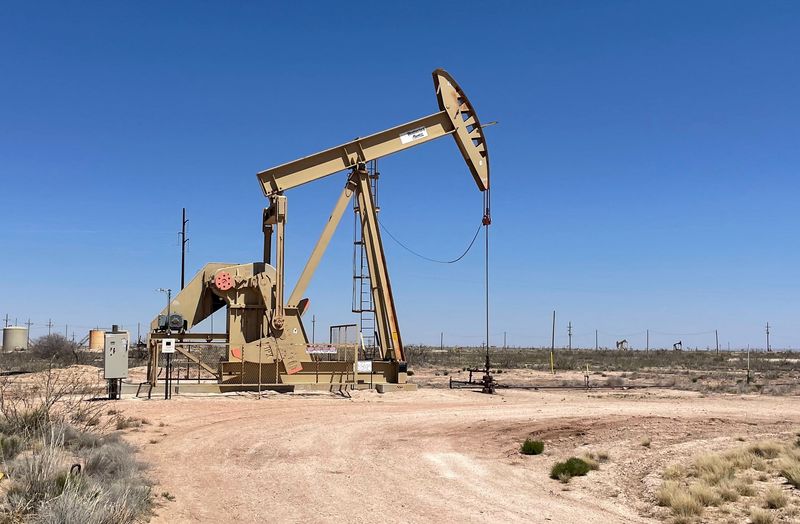Oil prices rise on risk of broader Middle East conflict
By Paul Carsten
LONDON (Reuters) - Oil prices extended gains on Thursday after the killing of a Hamas leader in Iran raised the threat of a wider Middle East conflict and concern over its impact on oil.
Global benchmark Brent crude futures rose 71 cents, or 0.9%, to $81.55 a barrel by 1124 GMT. U.S. West Texas Intermediate crude gained 72 cents, also 0.9%, to $78.63.
The most active contracts on both benchmarks jumped about 4% in the previous session.
Hamas leader Ismail Haniyeh was killed in the Iranian capital Tehran on Wednesday. With Israel's killing less than 24 hours earlier of Hezbollah's most senior military commander in Beirut, concerns rose that the 10-month war in Gaza between Israel and Hamas is turning into wider conflict that could disrupt oil supply from the region.
"Oil markets are justifiably worried that the assassination of Haniyeh will bring Iran more directly into the war with Israel. And that could put at risk Iran's oil supply and related infrastructure," Commonwealth Bank of Australia (OTC:CMWAY ) analyst Vivek Dhar wrote in a client note.
Dhar said markets will be worried about Iran's ability to escalate tension via its control of the Strait of Hormuz.
Also pushing up prices was data from the U.S. Energy Information Administration (EIA) on Wednesday showing robust export demand pushed U.S. crude oil stockpiles down by 3.4 million barrels in the week ended July 26.
The U.S. dollar index extended losses on Thursday from the previous session after the Federal Reserve held interest rates but left the door open for a cut in September. A weaker dollar can boost oil demand from investors holding other currencies.
Meanwhile, the Bank of England cut interest rates from a 16-year high on Thursday after a narrow vote in favour from policymakers divided over whether inflationary pressures had eased sufficiently.
OPEC+ ministers also meet on Thursday to decide output policy, with sources believing they are unlikely to make any changes to existing production cuts and will start unwinding some of those from October despite recent declines in oil prices.
In the longer term, however, investors are not confident of Chinese demand, said Phillip Nova analyst Priyanka Sachdeva, adding that this concern will continue to limit the upside in oil prices.
Official data from China on Wednesday showed that manufacturing activity slipped to a five-month low in July as factories grappled with falling new orders and low prices.
A private sector survey on Thursday also showed China's manufacturing activity in July had shrunk for the first time in nine months as new orders declined.
Source: Investing.com
